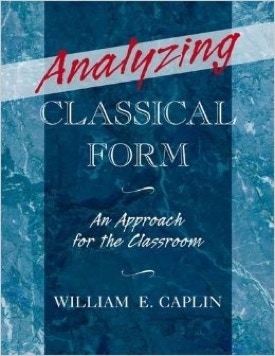Analyzing Classical Form
An Approach for the Classroom

Building upon the foundations of his critically acclaimed Classical Form, William E. Caplin's Analyzing Classical Formpresents the most up-to-date version of his "theory of formal functions" in an approach especially suited to the classroom. Students on both undergraduate and graduate levels will learn to construct complete harmonic and formal analyses of music drawn from the instrumental works of Haydn, Mozart, and Beethoven.
Part 1 introduces the principal theme-types of classical instrumental music; part 2 provides a methodology for analyzing sonata form, the most important formal type in this style period; and part 3 considers other full-movement forms found in this repertory (such as minuet, rondo, and concerto)
The book is amply illustrated with annotated musical examples for each topic covered, as well as many unannotated examples that can be used for in-class discussion and for out-of-class analytical exercises. A complete glossary of terms and chapter-by-chapter review questions will help students assimilate the many theoretical concepts employed in the book.
Order Analyzing Classical Form from Oxford University Press
Visit the Companion Website for Analyzing Classical Form
© WILLIAM CAPLIN 2023